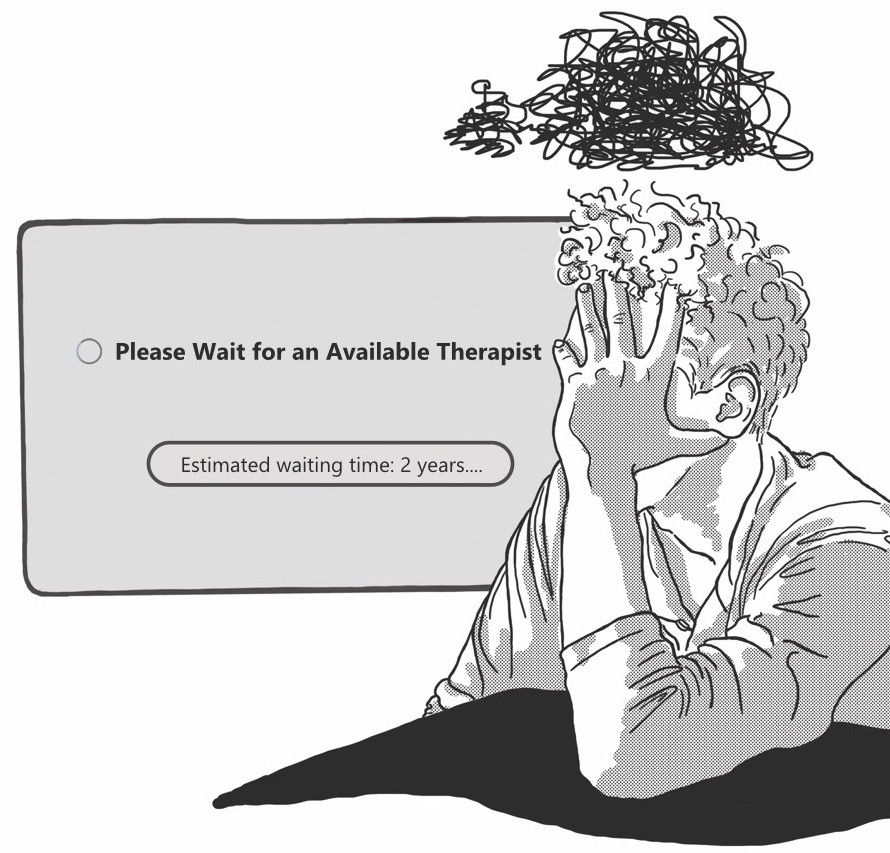Editorial: Concordia Doesn’t Care About Your Mental Health
When Alex, a Concordia undergraduate student who didn’t wish to disclose their real name, started experiencing worrying symptoms related to Attention-Deficit/Hyperactivity Disorder and Complex Post Traumatic Stress Disorder, they reached out to Concordia’s Counselling and Psychological Services.
Upon emailing CPS to seek an appointment with a psychologist, however, they were met with silence. Only after three emails did they receive a response. By this point, Alex said they were suffering from extreme dissociation and lapses in memory, and that they feared for their life. The representative Alex spoke to was unaware that they had attempted to contact CPS twice before.
Alex’s experience is one that countless Concordia students can relate to, and it cannot be chalked up to a single communication error. Students at this university face systematic barriers when accessing mental health services, precisely because the administration doesn’t take our health seriously.
For one, there is no university-run crisis line or drop-in space for those seeking immediate relief to mental health crises. Instead, Concordia’s webpage on mental health redirects students in these situations to external resources—such as Suicide Action Montreal.
Concordia does offer immediate aid to those experiencing crises related to sexual assault through the Sexual Assault Resource Centre’s drop-in clinic, which is also riddled with its own problems. If the university has the funds to establish a drop-in centre like this one, why can’t the administration establish more resources to address other mental health crises?
The lack of emergency mental health options for students demonstrates Concordia’s failure to recognize that mental health crises can affect students as suddenly and unexpectedly as any other medical emergency. Students functioning normally one day may need medication, prescriptions, counselling and other crucial resources the next—especially when impacted by the stressors of midterm season and the ongoing pandemic.

Those seeking sessions with a psychologist must undergo a laborious process set by CPS. Students first need to secure their spot for a fixed amount of triage appointments offered each week on a first-come-first-serve basis, regardless of the severity of their problems. Once triaged, students are warned that the wait for an initial appointment with their assigned counsellor may be lengthy and that intervals between sessions may also be long.
Even students who are able to access immediate aid through SARC have reported that seeking long-term counselling through this service is as difficult as through CPS.
What’s more, Concordia’s BIPOC students are left without internal, culturally relevant resources to access mental health support. Students dealing with specialized issues such as eating disorders, substance abuse and body dysmorphia are similarly left out in the cold.
Ultimately, this boils down to a matter of funds. Concordia administration has staffed CPS with only 12 registered psychologists for all 52,000 of its students. Why won’t the university provide more funding for mental health services to lower its psychologist-to-student ratio?
The fact of the matter is that Concordia doesn’t care about the mental well-being of its students.
Rather than providing students with direct support, which many in crisis need, Concordia instead points students in the direction of external resources such as self-help tools and external phone lines. In other words, the administration prefers that we don’t bother it with our mental health concerns.
Students can access some psychological services through the CSU as part of its Student Care Health and Dental Plan—notably, the 24/7 counselling hotline Empower Me. There are also student-run initiatives such as the Concordia Students’ Nightline that seek to provide emergency responses to mental health crises. Though admirable efforts, these simply aren’t enough to adequately care for 52,000 students.
The only way for students to not constantly be left waiting in triage lines, sending ignored emails or waiting weeks to see counsellors is for Concordia to step up and provide the necessary resources. The administration needs to establish adequately staffed crisis centres and hotlines, hire more psychologists to service its student body and understand that not doing so jeopardizes the student body in the same way any physical emergency would.
An institution that places extreme pressure on its students should at the very least provide adequate outlets for them to deal with these stressors.
This article originally appeared in Volume 43, Issue 5, published October 25, 2022.

.png)





_600_375_90_s_c1.jpg)